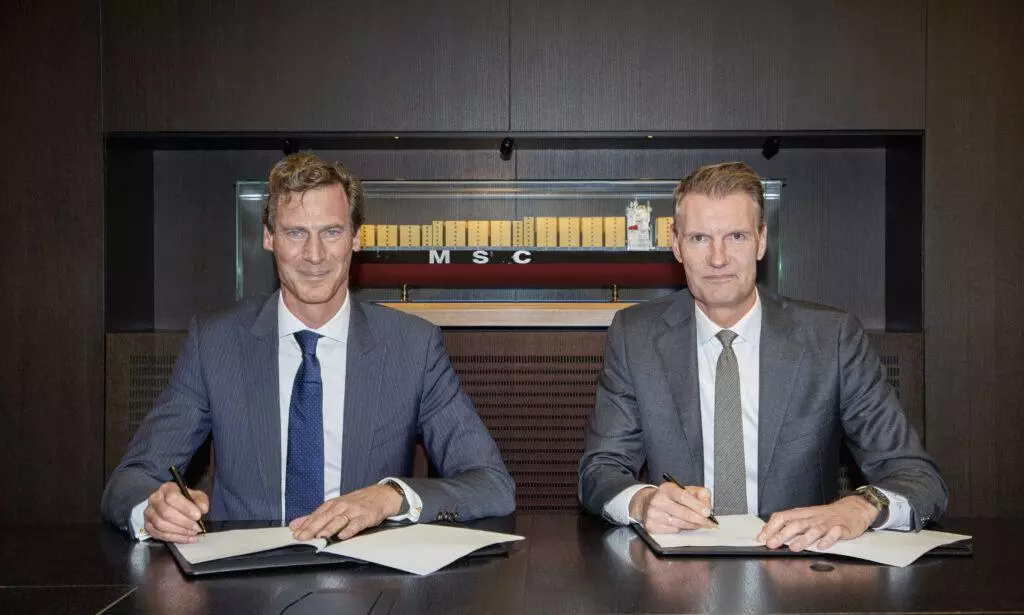DB Schenker, MSC seal biofuel deal to reduce supply chain emissions
First-of-its-kind agreement between a freight forwarder and a shipping line

Photo Credit: Oliver O’Hanlon
DB Schenker is expanding its green ocean freight services, securing an arrangement to use 12,000 tonnes of biofuel component for all of its own consolidated cargo, less-than-container load (LCL), full-container-load (FCL) and refrigerated containers (reefer containers) from MSC Mediterranean Shipping Company, the world’s largest container line.
"With this, DB Schenker closes an important biofuel deal and this agreement is first-of-its-kind between a freight forwarder and a shipping line," says an official release.
The amount of biofuel purchased is enough to save an additional 35,000 tonnes of CO2 equivalents (CO2e) along the entire production chain (well-to-wake) in the market, the release added. "The equivalent of around 30,000 standard containers (TEU) may be shipped with net-zero CO2 emissions, depending on how the fuel is used during navigation."
The deal sets out the use of certified sustainable, second-generation biofuels derived from used cooking oil instead of conventional fossil-based marine fuel. The 12,000 tonnes of biofuel component will be blended between 20-30 percent, resulting in approximately 50,000 tonnes of blended biofuel to be used in MSC’s container ships. The agreement allows DB Schenker to offer its customers an off-the-shelf product that enables net-zero ocean transportation, the release said.
“Together with MSC, we are offering our customers a convenient and clean solution using the latest generation of marine biofuel to help them achieve a real additional reduction in their emissions," says Thorsten Meincke, Global Board Member for Air & Ocean Freight, DB Schenker. :We are doing this because we firmly believe it is the right thing to do and are therefore paying for biofuel purchases in advance. One thing is certain: the more customers demand climate neutrality throughout supply chains, the faster we achieve clean container ocean freight.”
Caroline Becquart, Senior Vice President, MSC adds: “Decarbonising ocean freight cannot be achieved by a single player and requires collaboration between shipping and logistics companies and their customers. MSC Biofuel Solution is our first certified carbon insetting programme that reduces emissions in our customers’ supply chains, accelerating the energy transition by creating demand for net-zero-carbon shipping and delivering direct CO2 savings. We’re delighted to partner with DB Schenker, with whom we share similar climate ambitions along our collective journey to net zero.”
Biofuel can be used for regular ocean freight operations without adjusting ship infrastructure or supply chains, making it a particularly convenient solution, the release said. "MSC Biofuel Solution is designed to be a win-win approach to move from ambition to action. MSC bunkers sustainable biofuel and clients benefit from the CO2 savings, passing them on throughout the shipping value chain."



